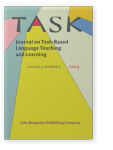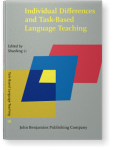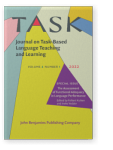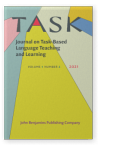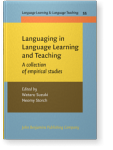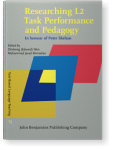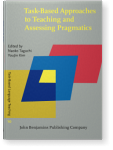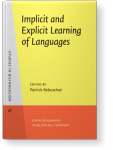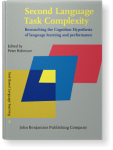Andrea Révész
List of John Benjamins publications for which Andrea Révész plays a role.
Journal
Book series
2024 Chapter 5. Written languaging, language aptitude, and L2 learning through dictogloss tasks Individual Differences and Task-Based Language Teaching, Li, Shaofeng (ed.), pp. 140–160 | Chapter
Languaging, learners’ reflections/comments on language use, has been shown to facilitate second language (L2) learning, presumably because it creates opportunities for noticing L2 constructions. If so, it would appear that the extent to which learners can make use of these opportunities might be… read more
2022 The role of pausing in L2 oral task performance: Toward a complete construct of functional adequacy The Assessment of Functional Adequacy in Language Performance: Special issue of the Journal on Task-Based Language Teaching and Learning 2:1 (2022), Kuiken, Folkert and Ineke Vedder (eds.), pp. 33–59 | Article
Studies of L2 oral task performance report fluency as critical for functional adequacy, with pausing behaviors emerging as strong predictors of functionally adequate speech. The present study investigated the extent to which the type and location of pausing is related to functional adequacy.… read more
2021 Exploring task-based cognitive processes: Methodological advances and challenges TASK 1:2, pp. 266–288 | Article
This paper argues that TBLT researchers should dedicate more effort to investigating the cognitive processes in which L2 learners engage during task work to facilitate theory-construction and to inform pedagogical practices. To help achieve this, a review follows of various subjective… read more
2020 Chapter 10. L2 learning and the frequency and quality of written languaging Languaging in Language Learning and Teaching: A collection of empirical studies, Suzuki, Wataru and Neomy Storch (eds.), pp. 219–240 | Chapter
The study investigated the effects of written languaging (WL) on second language (L2) learning and the extent to which the frequency and quality of WL are related to L2 development. It employed a pretest-posttest-delayed posttest design, with participants assigned to a +WL, −WL and control group.… read more
2019 Chapter 6. The effects of task demands on linguistic complexity and accuracy across task types and L1/L2 speakers Researching L2 Task Performance and Pedagogy: In honour of Peter Skehan, Wen, Zhisheng (Edward) and Mohammad Javad Ahmadian (eds.), pp. 133–152 | Chapter
The relationship between task variables and linguistic production has been the object of much second language (L2) research. This study contributes to this line of research by investigating the extent to which increasing cognitive task demands affects the syntactic complexity and accuracy of L2… read more
2018 Chapter 10. The effects of task type and L2 proficiency on discourse appropriacy in oral task performance Task-Based Approaches to Teaching and Assessing Pragmatics, Taguchi, Naoko and YouJin Kim (eds.), pp. 247–263 | Chapter
Conceived within the TBLT framework, the present study examined pedagogic tasks as vehicles for demonstrating L2 learners’ discourse appropriacy in oral production. Eighty ESL learners’ discourse appropriacy was measured using three pragmatically-oriented task types (complaint, refusal, and advice)… read more
2015 Challenges in implicit learning research: Validating a novel artificial language Implicit and Explicit Learning of Languages, Rebuschat, Patrick (ed.), pp. 275–300 | Article
This chapter documents some of the methodological challenges in the use of artificial grammars in second language research. In the three experiments reported here, participants were exposed to an artificial language system based on Czech morphology under incidental learning conditions. After… read more
2011 Chapter 8. Task complexity, uptake of recasts, and L2 development Second Language Task Complexity: Researching the Cognition Hypothesis of language learning and performance, Robinson, Peter (ed.), pp. 203–236 | Chapter
One claim of Robinson’s Cognition Hypothesis predicts that more cognitively complex tasks will promote greater uptake and retention of linguistic forms enhanced by interactional feedback such as recasts. The present study tested this claim by examining whether the task design variable ± visual… read more
